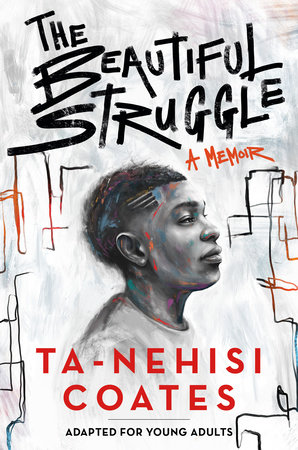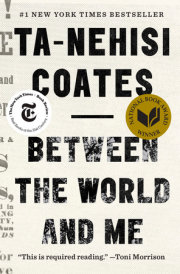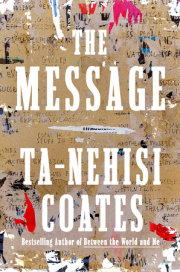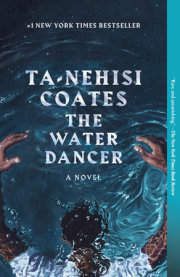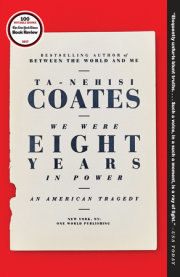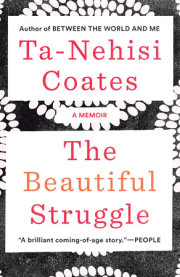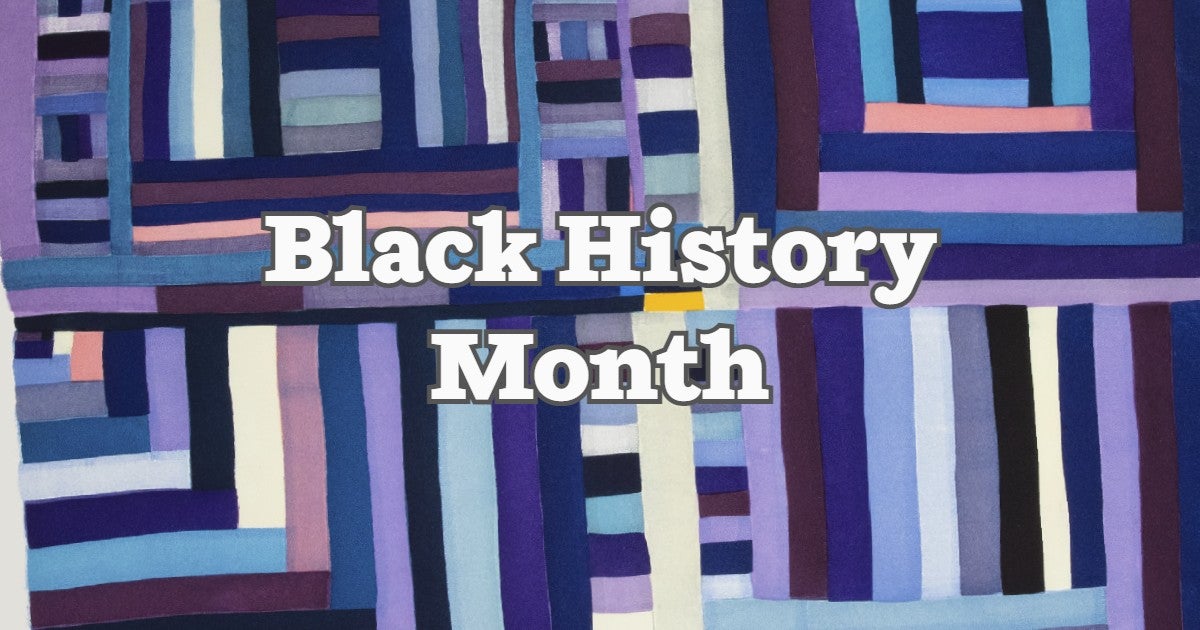chapter 1
There lived a little boy who was misled . . .
When they caught us down on Charles Street, they were all that I’d heard. They did not wave banners, flash amulets or secret signs. Still, I could feel their awful name advancing out of the lore. They were remarkable. They sported the Stetsons of Hollis, but with no gold. They were shadow and rangy, like they could three-piece you—jab, uppercut, jab—from a block away. They had no eyes. They shrieked and jeered, urged themselves on, danced wildly, chanted Rock and Roll is here to stay. When Murphy Homes closed in on us, the moon ducked behind its black cloak and Fell’s Point dilettantes shuffled in boots. In those days, Baltimore was factional, segmented into crews who took their names from their local civic associations. Walbrook Junction ran everything, until they met North and Pulaski, who, craven and honorless, would punk you right in front your girl.
It was their numbers that tipped me off—no one else rolled this deep. We were surrounded by six to eight, but up and down the street, packs of them took up different corners. I was spaced-out as usual, lost in the Caves of Chaos and the magic of Optimus Prime’s vanishing trailer. It took time for me to get clear. Big Bill made them a block away, grew tense, but I did not understand, even after they touched my older brother with a right cross so awkward I thought it was a greeting.
I didn’t catch on till his arms were pumping the wind. Bill was out. Murphy Homes turned to me.
Above all the factions, Murphy Homes waved the scepter. The scale of their banditry made them mythical. Wherever they walked—Old Town, Shake & Bake, the harbor—they busted knees and melted faces. Across the land, the name rang out: Murphy Homes beat brothers with gas nozzles. Murphy Homes split backs and poured in salt. Murphy Homes moved with one eye, flew out on bat wings, performed dark rites atop Druid Hill.
I tried to follow Bill, but they cut me off. A goblin stepped out from the pack—
Hey, you going somewhere?
—and stunned me with a straight right. About that time my Converse turned to cleats and I bolted, leaving dents and divots in the concrete. The streetlights flickered, waved as I broke ankles, blew by, and when the bandits reached to check me, I left only imagination and air. I doubled back to Lexington Market. There was no sign of Bill. I reached for a pay phone.
Dad, we got banked.
Okay, son, find an adult. Stand next to an adult.
I’m in front of Lexington Market. I lost Bill.
Son, I’m on the way.
I went to stand near a man about Dad’s age waiting at a bus stop, like age could shield me. He looked over at me unfazed and then back across the streets at the growing fray of frenzied youth.
I know that Dad and Ma saved me, pulled up in their silver Rabbit, sometime after I made the call; that Dad ran off into the swarming night to find his eldest son, and for the first and only time, I was afraid for him. I know that Bill’s mother, Linda, swooped down to the harbor and found Bill first, shuttled him back out to their crib in Jamestown. I know that Bill returned to Tioga days later, and when I told him how I’d dusted Murphy Homes, how I was on some Kid Flash level, he was incredulous—
Fool, they let you get away so they could chase me.
We lived in a row house in the slope of Tioga Parkway in West Baltimore. There was a small kitchen, three bedrooms, and three bathrooms—but only one that anybody ever wanted to use. All of us slept upstairs. My folks in a modest master. My two sisters, Kris and Kell, when back from Howard University, in an area where Dad also stored his books. There was a terrace out back, with a rotting wooden balcony. I almost died out there one day. Leaning against the crumbling wood I tumbled headlong, but caught myself on the back-door roof and came lucky feetfirst to the ground.
My room was the smallest, and always checkered with scattered volumes of World Book, Childcraft, Dragonlance, and Narnia. I slept on bunk beds made from thick pine, shared the bottom with my baby brother, Menelik. Big Bill, as in all things, was up top. By mere months, he was my father’s first son, but he turned this minor advantage into heraldry. He began sentences with “As the oldest son . . .” and sought to turn all his younger siblings into warriors. Big Bill was seldom scared. He had a bop that moved the crowd, and preempted beef. When bored, he’d entertain himself, cracking on your busted fade, acne, or your off-brand kicks.
Bill: Ta-Nehisi, get outta here with those weak-ass NBAs. Know what that stands for? Next time buy Adidas.
I was only ten, hobbled by preteen status and basic nature, while Big Bill was enthralled by the lights. This was the summer of ’86. KRS-One laid siege to Queensbridge. I would stand in my bedroom, throwing up my hands, reciting the words of Todd Smith—“Walkin’ down the street, to the hard-core beat / While my JVC vibrates the concrete.” Bill and my brother John spent all summer busing tables. Bill schemed on a fat rope, one that dangled from his neck like sin. Still, his money was young, and he could not stomach the months of layaway. So he returned from the mall with two mini-ziplock bags, each the size of a woman’s fist, each glimmering, like him, in the light. They held massive rings, one adorned with a golden kite, another spanning two fingers, molded into a dollar sign.
He flashed them before me, and I was caught by how the glowing metal made him swell inside his own skin. He was profiling, lost in all his glory, when Dad stepped to him.
Dad: Son. They’re fake. Son, you’ve been had.
Bill: You’re bugging. This is fourteen-karat. I paid cash money.
Dad: Son, son. Let’s have them smelted down and tested. If it’s ten karats or more, I will pay you for the rings. With interest.
Bill agreed to my father’s proposition, convinced he was on the better end. He found a place to smelt the gold, do the math. And I don’t know what was worse—the negative results or Dad’s rueful chuckle and sermon. Afterward, Dad went over to Mondawmin and had Bill point out the merchants. Then he walked to the glass counter, brandished the results, and spoke magic words. The magic words were “fraud,” “Black community,” and “State’s attorney.” Bill never felt the same about gold again.
My father was Conscious Man. He stood a solid six feet, was handsome, mostly serious, rarely angry. Weekdays, he scooted out at six and drove an hour to the Mecca, where he guarded the books and curated the history in the exalted hall of the Moorland-Spingarn Research Center. He was modest—brown slacks, pale yellow shirt, beige Clarks—and hair cut by his own hand.
But at night, he barbecued tofu, steamed basmati, and thought of sedition. He’d untuck his shirt and descend into the cellar, then comb through layers of ancient arcana. He collected out-of-print texts, obscure lectures, and self-published monographs by writers like J. A. Rogers, Dr. Ben, and Drusilla Dunjee Houston, great seers who returned Egypt to Africa and recorded our history, when all the world said we had none. These were words that they did not want us to see, the lost archives, secret collections, folders worn yellow by water and years. But Dad brought them back.
He called this basement operation Black Classic Press, and for the Coates family there was no escape. All of that house was bent by the mad dream of mass resurrection.
But out on the block, the hoppers draped themselves in Starter, Diadora, and Lottoes. Then they’d roll onto corners and promptly clutch their nuts. Big Bill was there. He rolled through the streets in a brown puff leather, and captained a minor gang of Mondawmin kids. When bored, they brought the ruckus, snatching bus tickets and issuing beatdowns at random. They gave no reason. They published no manifestos. This was how they got down. This was the ritual.
They spent summers hunting for girls. The jennies would catwalk through Mondawmin in stonewash with wide red hands spray-painted across their fannies. They gilded their namesakes in triple bamboo earrings, and when they heard your call—hey, yo, shortie, come here—they did not look back to flip a bird. They did not crack smiles for anything. Their focus was on hair, mounds and mounds of hair, gelled, fried, french rolled, finger waved, extended into a dyed and glittered crown. They were of the moment. They took one look at West Baltimore and understood that they were the best of it. So they walked like they were all that mattered, like they had no time.
You had to be harder then. You could not bop through Park Heights like the second coming of Peanut King. Even the skating rinks demanded six deep. Teen pregnancy was the fashion. Husbands were outties. Fathers were ghosts.
Here’s the cast of my last name: My father has seven kids by four women. Some of us were born to best friends. Some of us were born in the same year. My elders come first, in chronology—Kelly, Kris, William Jr.—all born of my father’s first marriage to Linda.
John was born to Patsy, Malik born to Sola.
Then me and Menelik, the children of my mother, Cheryl. This is all a mess on paper, but it was all love to me, and formed my earliest and still-enduring definition of family.
Big Bill and John were both born in 1971. Dad was married and two daughters deep. He was a Vietnam veteran, and must have seemed to Linda to be a stand-up ordinary guy. But he lurched radical and joined the Black Panther Party, where he rose to lead the local chapter. He lost his union job. He went to work overtime for the impending revolution. His family went on relief.
Dad missed the births of Kris and Kell, and was away again when Linda went into labor with Big Bill. Something always seemed to happen—a phone was off the hook, one of the Panthers took a shoddy message. On the day of Bill’s birth, Dad pushed Linda’s 1966 Mustang across town to South Baltimore General. He was carrying some measure of spiritual weight. He was twenty-five, at the height of all his vigor, and out to get his share. He lived with Linda and the kids at the top of a winding road out in South Baltimore’s Cherry Hill. But he wore no rings, felt marriage was day-to-day, and was out to fulfill the general destiny of young men.
What Linda knew of the Panthers was that Dad had gone from honorable, hardworking vet to someone who justified food stamps and the projects. Dad arrived at the hospital the night Bill was born, and found his wife laid up and lovely in all her postpartum glow, and that made him confessional and bold. He had planned no speech, but just blurted it like bad soup: Linda, I have another child on the way. There was no good time to drop this, but there were many really bad ones and Dad had picked from this lot.
He performed this ignominious feat again. That October, he came to the hospital to see Patsy and newborn John. Again he found a mother of his child laid up. Again he dropped the same load but with a twist. He had another child on the way, by Patsy’s best friend and comrade in the party.
My father knew how to hurt people without knowing how he’d hurt them. And maybe in the end this is what saved him. He was shameless in his pursuit of women. He was perpetually broke. But he never shirked when his bill came due. He hustled for his babies’ new shoes, while his frayed at the seams. Among the Conscious, he was known for the books he exhumed and breathed back. But he was known just as much for the constant presence of his brood, even as the specific makeup of the brood rotated.
He was called to fatherhood like a tainted preacher. The root was his own alcoholic father, who seeded so many children that Dad simply lost count. He impregnated three sisters, and so Dad had aunts doubling as stepmothers.
His father was intellectual, forced him to recite Bible verses, lectured from the morning paper. But anger and cheap wine soiled the best of him. He’d snap on a dime and fling five-year-old Dad clear across the living room. Aunt Pearl would step up and take the beating for him. When he was nine, Dad came home from school and found his life out on the sidewalk. He spent the following weeks living in a pickup truck with his father, two brothers, and Aunt Pearl. Later his father dropped him and his brother David off at his mother’s house and faded out.
Now Dad had woven his own tangle of mothers and children spanning fourteen years. His passion was sons, if only because the odds and stakes seemed so high. We held him in this weird place, somewhere between hatred and complete reverence. All our friends were fatherless, and Dad was some sort of a blessing, but he made it hard to feel that way. He was a practicing fascist, mandating books and banning religion. Once he caught Big Bill praying at the kitchen table and ordered him to stop—
You want to pray, pray to me. I put the food on this table.
Another time, in the middle of dinner, Bill pronounced that he couldn’t wait to grow up so he could move out, make his own rules. Dad stared hard—
You don’t have to wait. You can go now.
All of us knew he was flawed, but still he retained the aura of a prophet. On our life map, he drew a bright circle around twelve through eighteen. This was the abyss where, unguided, black boys were swallowed whole, only to reemerge on corners and prison tiers.
Dad was at war with this destiny. He was raising soldiers for all terrain. He preached awareness, discipline, and confidence. He went upside heads for shirking chores, for reaching across the table for the hush puppies, for knocking over a pitcher of juice. His technique was random—you might get away with a sermon on the virtues of Booker T., or you might catch the swinging black leather belt.
Once, Bill and me got to wrestling on Ma and Dad’s bed, and some of the boards in the frame snapped in two. We engineered a sloppy resetting. Dad and Ma wouldn’t be home till after we’d gone to bed. If Dad asks, Bill instructed, just tell him you don’t know what happened.
Dad woke me up first. What happened to the bed?
I shrugged. I don’t know . . .
He woke up Bill. What happened to the bed?
We broke it wrestling.
I glared, but only inside.
You had to make it worse by lying, Dad said.
He took us downstairs to the back door. Both of you get out. Go out back. You want to wrestle, go out in the backyard right now and wrestle.
Then he shut the door. We stared at each other for a moment, then Bill grabbed me and threw me to the ground. We tangled out there on the dirt for Dad’s benefit for who knows how long, before we realized that he probably wasn’t watching.
Ma came out later, sent us back upstairs. Dad had gone to bed.
My father scared me, but not even fear could alter the basics of nature. I brought home mediocre report cards: Is not working up to potential, Needs to apply himself, Discipline is a problem. Ma would go up to school and come back with migraines—that she passed on to us. Her eyes would go white. She’d dig nails into my arm—
I am not raising nothing children. Where is your head? What are you thinking, boy?
I am thinking of Sunday waffles and Morning Star. I am grieving for Lynn Minmei, apatosaurs, Tom Landry, and Cowboy blue. I am staring three desks over and dreaming of Brenda Neil, dancing in a pink-and-white gown.
Dad would see me coming like some great lost cause, and clap his hands thrice—
Wake up, boy. Walk like you got business. Walk like you got somewhere to be.
I had my chances to turn this story another way. In fourth grade, Ma and Dad sent me off to apply for scholarships at private schools. I went through the rounds of class visits, noted how much better the lunch was, and then dawdled my way through the standardized tests. I was bigger than multiple choice and bubbles, so I picked answers at random and acted shocked when months later I was rejected by every school.
Now two years later Dad’s methods grew radical. William H. Lemmel Middle School sat on a hill off Dukeland. From its depths, wild rumors spewed—vice principals body-slammed on open fields, atrocities perpetrated in lunch lines, boys walking home in socks. But at Lemmel, the teachers waged Dad’s kind of fight. Across the state, better jobs, better salaries, better living called out to them. The headmasters arranged their students into teams, and named each one after the Saints—Douglass, Tubman, Woodson, King. They mandated uniforms, formed classes for the ghetto’s gifted, and trumpeted their ostentatious mantra—Lemmel Middle School Is a School for Winners. This redoubled Dad’s efforts, reinforced his mission to ground me in history and struggle. But when Big Bill heard this, he gave me the only words that mattered: Lemmel kids don’t play.
Big Bill was now a permanent fixture at Tioga, having been remanded from the good graces of his mother. His time was running out. He was entering tenth grade. He was tall and smooth as Kane touching “All Night Long.” He pulled shorties with all the effort of a long yawn and, like so many, believed that he would make a living off his jumper.
It must have been that summer of fool’s gold, when Bill and John went extreme. They worked together busing tables at a local deli. One Saturday they left work and went riding in a stolen car with our cousin Gary. That evening Dad was informed that his sons were in the custody of the Baltimore County police. Dad drove out to get his boys, and when he had them back at home, he administered a legendary thrashing. The next morning, Dad unfurled a list of labors, and Tioga turned into a work camp. More so even than usual. About that time Bill was permanently assigned a bedroom, which he shared with me and Menelik, who was four. He laced the walls with autographed posters of his favorite ballers, the Human Highlight Film and the Big Smooth.
Now Ma checked my and Bill’s homework every night. Dad ran a compulsory book-of-the-month club selected from what we considered obscure and irrelevant. Bill requested back issues of Sports Illustrated. I don’t even remember Dad replying. But I do remember Flight to Canada and Dad’s attempts to inculcate us with Ishmael Reed’s unique brand of humor. Bill had his own jokes—
Look at that guffed-up trim, he said, pointing to Reed’s back-cover portrait. This fool’s got a half fro.
On weekend evenings, released from Dad’s yoke, we would sit out on the front porch with the radio pumping New York straight talk. Frank Ski would take to the one and twos, and drive off Whitney and all the feminized rhythm, until Afrika Bambaataa owned the night. Bill would pop a tape into the second deck of his boom box. He’d tagged his moniker—M.C. Destiny—to both speakers with Wite-Out. Some nights Dante, from two doors down, would step past his staggering father and come hang. Once, when lifted, Dante’s dad tried to fit his key into our front door. Dad opened and politely directed him home, then silenced Bill, who’d gone up the steps cackling.
Dante would give Bill some dap—I was not yet worthy—and sit down on the brick steps, nodding to “The Show” or “Paul Revere.” He had it bad for our older sister Kris, and he would groan and razz Bill about this fact. But Bill was too cool. He’d just laugh and search Dante for imperfections—ears like Hawaiian Islands, a scuffed pair of Adidas—and crack on him for an hour. Then he’d punch Dante in the arm, Get off my porch, punk. They were like all the neighborhood laughing boys. Around the corner, the gaping maw of the world waited and they had no idea.
Dad would be in the basement working with his books. He could not understand that we too were unearthing, that we were beholders of sorcery—Phil Collins mixed with the Biz, Ofra Haza, and The God.
Dad left the Panthers in ’72 and was awarded the lofty title “Enemy of the People.” This was shortly after he first met my mother. He would pack his car with Knowledge of Self and drive over to Howard University. He set up a table, and on it displayed many volumes of concealed history and radical lore. In those days, Howard was the fountain of all things right with the Race. The school had grown strong under Jim Crow, feasted on the minds of students and teachers color-bound to a handful of schools, until it was more than a University but a Mecca, and was known as such by all who were down. In the ’50s and ’60s, Brothers came to the Mecca, thinking only of their nether selves, for it was said that at no point in history had there been more beautiful women in one place than at any random day on that campus. But somehow they were changed there, and left possessed by the spirit of Howard’s legendary professoriat, of Eric Williams and E. Franklin Frazier, and they fled south to be flogged by sheriffs and Klansmen.
In the days after Malcolm and Martin, the Mecca was changing again. Dad sold books at conferences that promised a new order, ushered in by poetry, independent schools, and bricks. But more than all the new slang and ways of being he beheld, it was an elder who gave the lesson that pointed out the path for his kids. This man had worked at Howard in a low, honorable way, sweeping the floors, raking the grass, sanctifying the toilets. I know nothing of his life, except that he found great peace that the Mecca’s bylaws granted a free education to all children of the school’s employees. Dad heard this and was struck. Now, many years later, he’d procured a job working in Moorland-Spingarn. With seven kids the need was extreme. But already my sisters Kris and Kelly were enrolled. What was left were five boys, two of us sitting out there nodding to this new and lovely noise.
It was the sound of our era, and in it we beheld all our wants and great fears. Big Bill was under pressure. Murphy Homes had left him exposed and open to the knowledge that there were many moments when all he would have was himself. This was 1986, onset of the Crack Age. People started dying all around us—Nana, Aunt Joyce, Bill’s grandmother Ms. Verla, and then the record 250 other Baltimoreans gone missing by murder. That year, my man Craig was butchered on his way home from work. He was the poorest kid in a class where everyone was on lunch tickets. His shoes talked; he wore a red plaid lumberjack shirt many days out of the week. He had several siblings. Now the orcs had ambushed and taken him out.
I came into all of this dazed by the lack of shade, by the quickness between child and child-man. But, as always, Big Bill was clear, and after Murphy Homes he probed his connections until he found a merchant of arms. He stashed it in our bedroom, in his brown puff leather jacket. He showed it to me without bravado, its weight gave it authority, and I knew it was real. And from that point forward when walking the land, my brother Big Bill was strapped.
Copyright © 2021 by Ta-Nehisi Coates. All rights reserved. No part of this excerpt may be reproduced or reprinted without permission in writing from the publisher.





